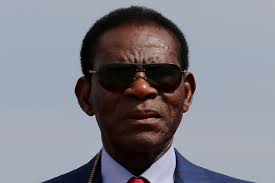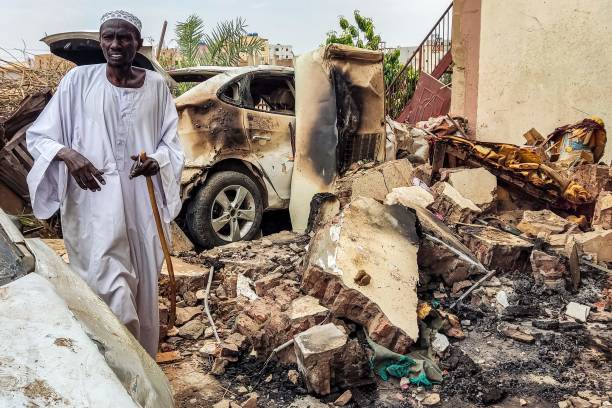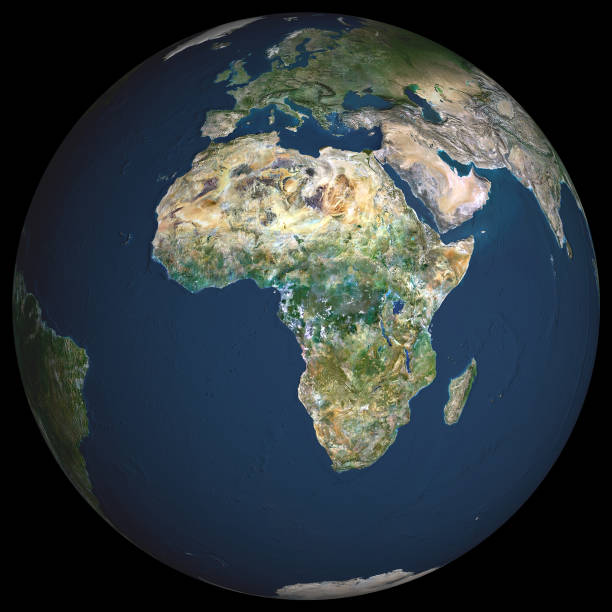In most parts of the world, being a president is like renting a flat: you move in, stay for a few years, and then it’s time to pack your bags — whether you like it or not. But in some corners of Africa, especially where the furniture in presidential villas seems glued to the floor, certain leaders have made “two terms” feel like a bad joke.
In 2025, eight African presidents continue to lead their nations with what can best be described as a death grip on power — some entering their fifth decade in charge. Forget peaceful transitions; in these countries, constitutions are more like suggestion boxes: often opened, rarely followed.
Let’s take a human — and slightly humorous — look at Africa’s longest-serving presidents who clearly didn’t hear the part where they were meant to “hand over power.”
Teodoro Obiang Nguema Mbasogo — Equatorial Guinea (Since 1979)
Years in Power: 45
This man took over before most Gen Zs were born — and he’s still here! Obiang seized power from his uncle in a 1979 coup (family dinners must be awkward) and has never looked back. He’s now the longest-serving president in the world. While his country is rich in oil, most of his citizens live in poverty — a classic case of “my government is rich but my people are broke.” Human rights? Let’s just say they’re not on the menu.
Paul Biya — Cameroon (Since 1982)
Years in Power: 42
At 91, Biya is officially the oldest sitting head of state in the world. Some say he rules from abroad more than at home, and there’s a long-running joke in Cameroon: “President Biya is more familiar with the hotel staff in Geneva than his own ministers.” The opposition accuses him of vote rigging, intimidation, and constitutional wizardry that keeps him in power. And guess what? Next year, he might just run again.
Denis Sassou-Nguesso — Republic of Congo (1979–92, 1997–present)
Combined Years in Power: 41
If not for that five-year break in the ’90s, Sassou-Nguesso would be neck-and-neck with Obiang. He lost power, didn’t like it, came back through a bloody civil war, and rewrote the Constitution to suit his taste. Elections? They’re held. But are they fair? That’s like asking if jollof rice tastes better without pepper.
Yoweri Museveni — Uganda (Since 1986)
Years in Power: 39
Museveni once said, “The problem with Africa is leaders who overstay.” Fast forward to today — he is that problem. He’s altered the Constitution not once, but twice: first to remove term limits, then age limits. The Ugandan opposition tries, but their protests often end with tear gas and house arrests. Bobi Wine, his most prominent rival, has the battle scars to prove it.
Isaias Afwerki — Eritrea (Since 1993)
Years in Power: 31
Afwerki leads a country where elections are mythical creatures — often talked about, never seen. No elections, no opposition, no press freedom. Eritrea has just one legal party (his), no national budget (that the public can see), and reportedly, one man calling all the shots. It’s not a presidency. It’s a one-man show with no intermission.
Ismail Omar Guelleh — Djibouti (Since 1999)
Years in Power: 26
They call him IOG — and he’s been firmly seated since the 20th century. Guelleh changed the Constitution in 2010 to extend his stay. Elections are often boycotted, and when opposition candidates do try, they allege ballot stuffing and intimidation. With the Red Sea trade lanes nearby, Djibouti is strategically important — and IOG knows it.
Paul Kagame — Rwanda (Since 2000)
Years in Power: 25
Kagame divides opinion. He brought stability after the horrors of the 1994 genocide, modernised Rwanda, and has the streets of Kigali cleaner than some Western capitals. But critics argue he stifles dissent and controls the media. A 2015 referendum allows him to stay till 2034 — which he might just do, God willing and Constitution permitting.
Faure Gnassingbé — Togo (Since 2005)
Years in Power: 19 (Plus 38 from his dad)
Togo has been under the Gnassingbé dynasty since 1967. That’s nearly 60 years of one family running the show — it’s less a republic, more a family business. Faure took over after his father died and quickly “adjusted” the Constitution to his benefit. With parliament solidly in his party’s grip, the Gnassingbés are not packing up anytime soon.
Bonus: The Royals Who Never Leave
Not to be left out, Africa also has monarchs whose reigns make even the above look like casual contracts:
-
King Mswati III of Eswatini has ruled since 1986. Known for his flamboyant lifestyle and many wives, his people remain among the poorest in Southern Africa.
-
King Letsie III of Lesotho is more ceremonial but has been on the throne (off and on) since 1990.
-
King Mohammed VI of Morocco, ruling since 1999, holds vast powers even with a constitutional monarchy — including appointing the prime minister and top judges.
The secret sauce? A mix of weak institutions, fear of retribution, control of security forces, and in many cases, rewriting the rulebook. These presidents have mastered the art of staying put — using the Constitution like a rubber band: stretchy, flexible, and easily manipulated.
Let’s not pretend: building real democracies is hard work. But when “president” starts looking like a lifetime title, the rest of the continent takes note — and not in a good way.
As one Nigerian auntie might say, “Is it your father’s house? Even landlords collect rent and still go on retirement!”
But for these African leaders, it seems only one thing guarantees an exit: the final call from the Almighty.
Got thoughts on the sit-tight syndrome? Let us know. Just don’t send it to the presidency.





